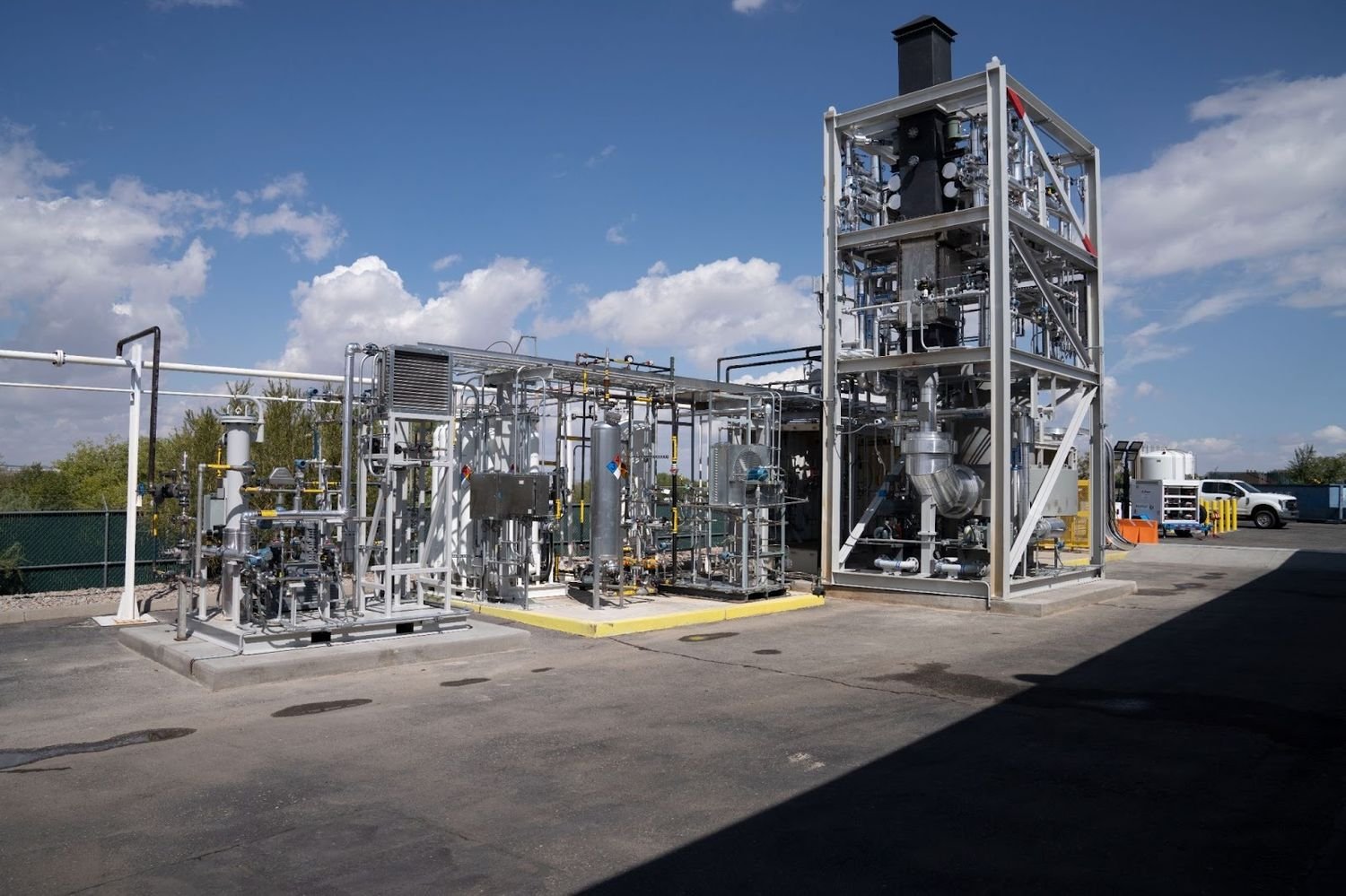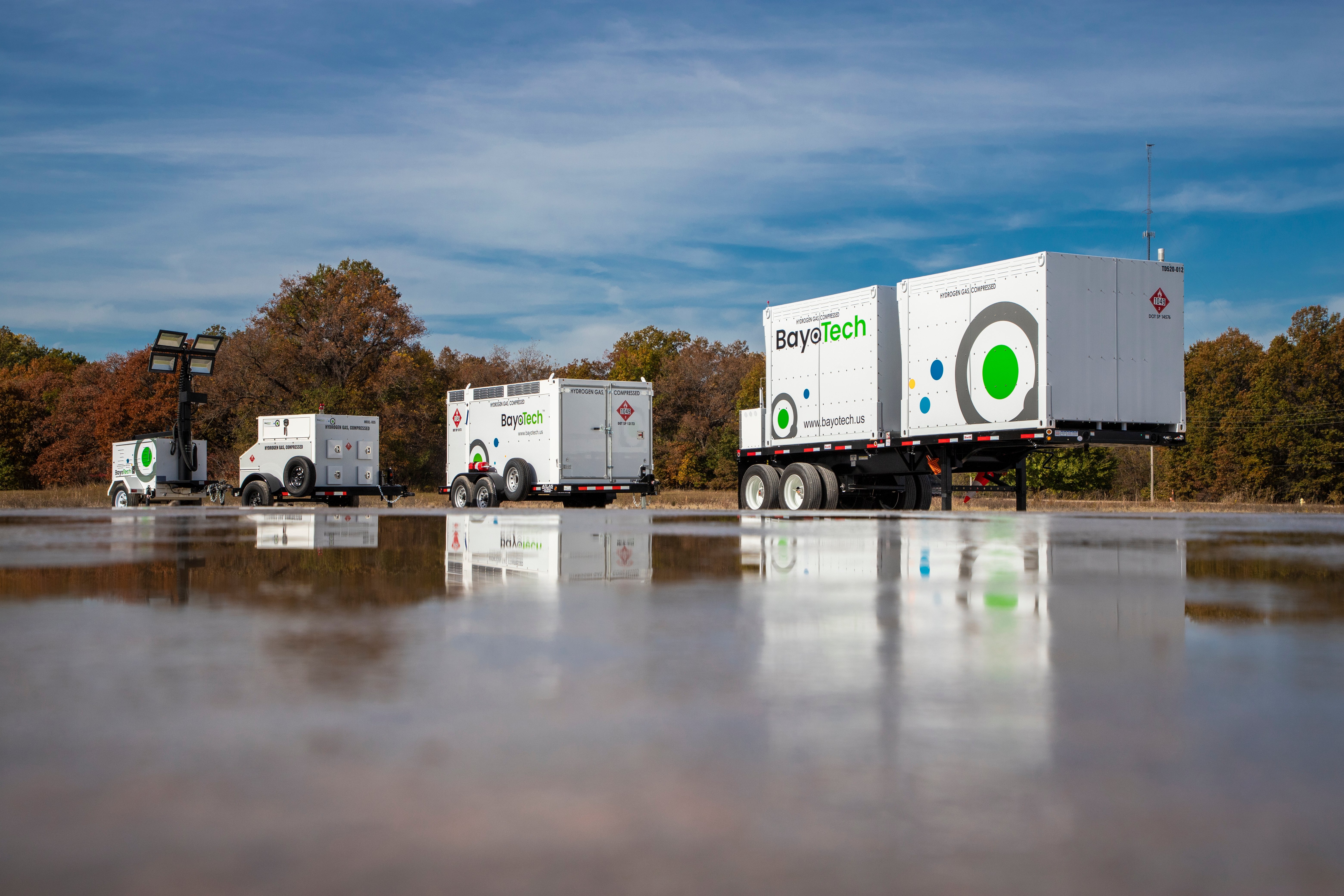As the world moves into decarbonization, there are choices to be made around which technology solutions to adopt. Understanding the facts, and not the rhetoric, around the safety, efficiency and long-term costs of the various options is essential when making these decisions.
Although different applications call for different energy solutions, hydrogen is a great solution especially in industries such as long-distance transport, industrial input, backup power or off-grid primary power.
Certain safety aspects of the use of hydrogen is often questioned, even though it has been implemented successfully in many applications around the world. We acknowledge that there are safety risks associated with all energy solutions, but it’s important to delineate fact from fiction.
In this blog, we’ll be discussing how hydrogen is safer than conventional fuels.
Comparing Hydrogen to Natural Gas and Gasoline
When discussing the safety of hydrogen, it’s important to keep these things in mind:
- Hydrogen is the lightest of all elements - it’s fourteen times lighter than air and rises quickly in the event of a leak, dispersing harmlessly into the atmosphere. Unlike gasoline, hydrogen will not pool on the ground, potentially contaminating water sources and soil, or creating a catastrophe if ignited.
- Fossil fuels pose significant health and environmental safety threats when leaked, spilled, or combusted. Hydrogen leaks are non-toxic, this is in steep contrast to other fuels. If diesel gets into the waterways, it can cause serious pollution to rivers, streams and groundwater.
- Hydrogen is less combustible. Gasoline in the air is flammable at a lower concentration limit of 1.4%, compared to hydrogen’s 4%. To put it another way, gasoline is two to three times more flammable in the air. The optimal mixture for hydrogen combustion is 29%—which in reality is quite unusual, since hydrogen rises and will generally diffuse. Gasoline vapor’s optimal mixture for combustion is only 2%—a ratio that is very easy to reach.
- In the unlikely event of ignition, hydrogen burns faster than gasoline and with a lower radiant heat due to the absence of carbon. Therefore, the risk of secondary fires due to hydrogen is also lower. BTW: Modern pressurized hydrogen storage tanks are designed to make it impossible for sources of ignition (oxidizers) to come into contact with the fuel.
Robust Safety Measures
Hydrogen has been safely used in a variety of applications for over half a century—giving time for scientists and engineers to develop and implement rigorous safety protocols.
The Department of Energy and other global entities have created safety codes and standards based on decades of research and testing by private sector companies. These standards have helped build processes that mitigate potential harms.

Like any fuel, safe use of hydrogen is contingent on safety measures preventing situations where leaks and combustion occur.
While hydrogen is being produced, safety systems have integrated leak sensors, adequate ventilation and special flame detectors. In transportation, systems include pressurized tanks with leak suppression and venting, and thermally activated pressure relief devices. High-pressure hydrogen tanks are held to rigorous performance requirements and undergo extensive testing. And by the way, fuel cell vehicles surpass current crash test standards when compared to their fossil fuel cousins. In the unlikely scenario that an issue should occur, hydrogen fuel tanks are designed to safely release hydrogen into the air.
Hydrogen fueling stations are subject to strict safety regulations just like gasoline stations, and the increase of hydrogen fueling stations being built around the world is a clear indication that their safety has been proven.
How BayoTech Implements Safety Features
The common hazards related to hydrogen include gas leaks, which can cause fire and explosions. There can be fire hazards related to high pressure lines and equipment, electrical hazards and steam hazards. BayoTech’s H2-1000 includes extensive safety features to help prevent these risks.
As preventative measures, BayoTech includes the following safety controls:
- Remote and on-site emergency shut off systems
- Stringent safety policy & guidelines
- Leak detection systems
- Robust remote monitoring systems powered by Emerson
- NFPA 2 Hydrogen Technologies Code and CGA S1.1 and 5.5
- Process control systems as per IEC 61508/61511
- Pressure relief systems (PRV/PRD)
- Safety vents
We make sure that safety controls have manual overrides in place in case of emergency. Utilizing these safety measures not only meets industry standards but exceeds them and provides both the facility and surrounding areas a safe and secure local source of hydrogen fuel.
Final Thoughts
Despite the myths, hydrogen has long been one of the safest energy carriers available. Modern safety standards have led to systems with multiple precautions and failsafe measures through its production, transportation and final use.
The hesitation to adopt hydrogen fuel might be because people have become comfortable and knowledgeable about how to handle flammable fuels even though when handled responsibly, hydrogen is less dangerous than nearly all energy sources we use today.
With continuing research being done to ensure even more safety in its use, it becomes harder to question the safety of hydrogen fuel systems.





